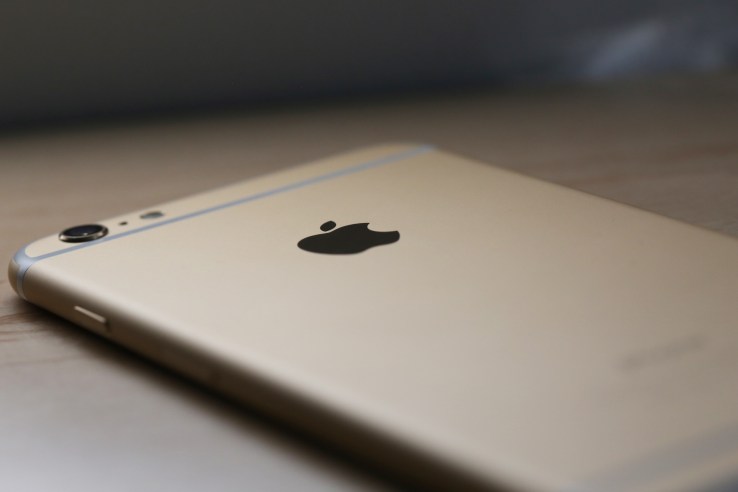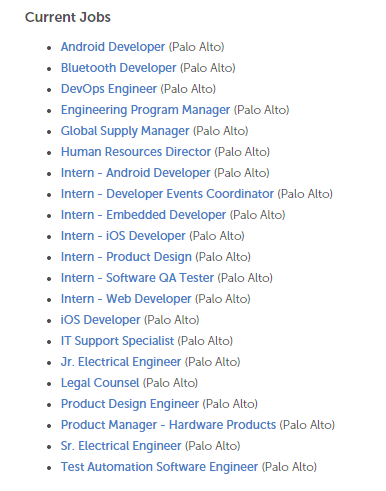Sections
Pick of the Week – Apple the fruitful company
If Apple’s many competitors were hoping for some breathing space in the wake of their mammoth quarter, a number of developments this week should give pause for thought. From Reuters highlighting the rapid deployment of HealthKit within US hospitals and reports the company is launching a cross-platform Beats service to compete with Spotify to suggestions that Apple are building their own search engine and glimpses into how they intend to retail Gold Edition watches to replacing iPhoto with a fast cloud-first cross-platform replacement called Photos, Apple’s reach is expanding far beyond their iPhone fortress.
It’s a dizzying thought given massive iPhone 6 sales but there’s clearly plenty of room left for Apple to grow further still. Rather ominously for the likes of Google, Samsung and Microsoft, they don’t really seem to face any significant competition on a range of fronts:
“Nothing on the horizon would seem to indicate Android devices are on the verge of gaining any significant technical advantage over iPhones, and Apple’s pacing in terms of releasing larger-screened devices has clearly done a lot to trigger of users waiting for that feature on iOS hardware. And with Samsung seeming like a ship that may have lost its rudder, Apple may be fighting a battle without a truly organized resistance.”
Devices and Manufacturers
- Vlad Sarov in The Verge outlines three reasons why the Galaxy S6 is going to change the mobile dynamics. The switch from Qualcomm’s Snapdragon 810 to Samsung’s Exynos processor is going to have major downstream impact on Qualcomm who were likely banking on S6 sales for a large chunk of 810 chipset sales:
“Samsung’s scale is such that when it chooses to change, the whole mobile industry feels the repercussions. So far, the key alterations from previous Galaxy S generations appear to be a move to an all-metal construction, a display that may be curved on one or both sides, and the repudiation of Qualcomm’s Snapdragon processors in favor of a full reliance on Samsung’s own Exynos. These factors all matter individually, but taken as a whole they mark a major departure from the almost cynical pragmatism with which Samsung has approached its phones in the past.”
- On the subject of changing the current industry dynamic, Canonical have unveiled their latest take on Ubuntu phone in which they are channelling a wider industry trend to card-based UIs and also hoping to emulate Xiaomi’s success with flash sales:
“The Aquaris E4.5 Ubuntu edition relies on a card-like user interface that is not focused on apps. … Canonical, which developed the Linux-based operating system, said it hoped to emulate the success of Chinese companies including Xiaomi with its launch strategy. This will include holding a number of “flash sales” in Europe beginning next week, in which the device will be sold for short periods of time – giving the developers an opportunity to gauge demand and respond to feedback before committing to a bigger production run.”

- Cisco global mobile data usage stats reveal we’re consuming ever more of it:

- Fascinating OpenSignal report into the distribution of dual-SIM devices globally which suggests that although as many as 25% of Android devices are dual-SIM they are mostly used in Asia followed by Africa:
- Microsoft Office is now available “everywhere” meaning iOS and Android as well as Windows and across a range of mobile form factors from smartphones to tablets:

- Meanwhile The Verge really like the new “Outlook for iPhone” which turns out to be a hastily rebranded version of the email client provided by Acompli who Microsoft acquired barely two months ago for $200million. It’s another clear sign of Microsoft’s increasing move to a cross-platform mobile strategy.
/cdn0.vox-cdn.com/uploads/chorus_asset/file/3354354/arch-del_1.0.jpg)
- The recent massive security breach at Sony which the US suggested was caused by North Korea has cost the company $15million and appears to be a contributory factor in the loss of over 2000 jobs in Sony’s smartphone division.
- Gorilla Glass giant Corning’s fightback against sapphire is called Project Phire which is:
“a new product that promises to combine Gorilla Glass 4’s damage resistance with ‘scratch resistance that approaches sapphire.'”
Hi Resolution Audio
- David Pogue’s review of Neil Young’s hi resolution audio Pono Player is fairly damning and contains its own adhoc A/B test findings which Pogue suggests demonstrate that there is no obvious difference detected between music obtained from the Pono store and 16-bit AAC encoded equivalents from iTunes:
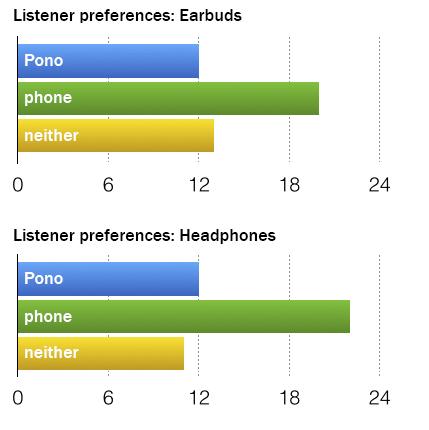
- His advice to invest instead in a pair of expensive headphones echoes that provided a few weeks ago by another critic referenced in this blog:
“To me, the Pono Player story is a modern retelling of “The Emperor’s New Clothes.” … My advice: If you want a better, richer, better balanced, less tiring, more comfortable listening experience, you don’t have to spend $400 on a new player and throw away your existing music collection. … Just spend a couple of hundred bucks on a nice pair of headphones.”
- Hi resolution music streaming service Tidal apparently has “only 12k users“ but is expanding coverage to 22 more predominantly European countries. Jay-Z has put in a $56million offer for Norwegian parent company Aspiro:
“Like Pono, Tidal is aiming for the higher end of the market and a quality product, referring to itself as the “ideal music service for those who care about quality.” Also like Pono, it’s based around FLAC technology, specifically FLAC/ALAC 44.1kHz / 16 bit – 1411 kbps. … Tidal currently has a catalog of 25 million tracks and 75,000 music videos, along with a curated discovery platform.”
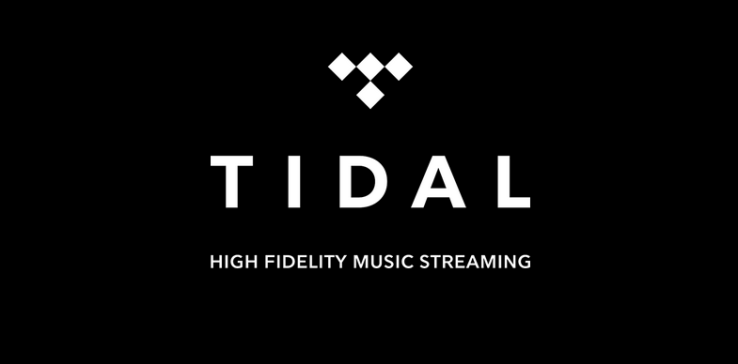
Google and Android
- Google have introduced the ability for third party apps to integrate with Google Now using the familiar card-based UI. They also provided some screenshots of such third party card integrations including TripAdvisor and AirBnb examples below:


- Lollipop takeup by OEMs remains somewhat anaemic several months after launch. Google figures now record Lollipop being 1.6% of the installed Android base:
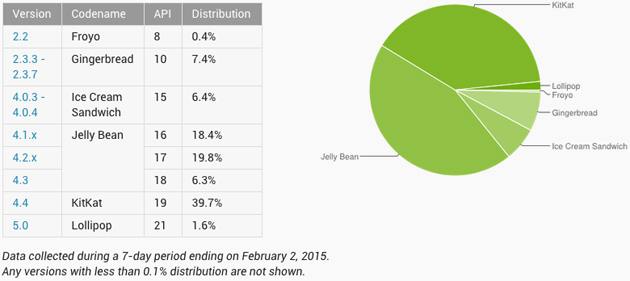
- Vestigens is an IoT startup “focused on building smart sensors that can, using various test strips do amazing things ranging from analyzing water quality for drinkability, to using a drop of blood to measure sugar levels.” Their CEO is very upbeat about the promise of Google’s modular smartphone initiative Project Ara:
Apps and Services
- Snapchat Discover is the latest twist in the OTT Messaging landscape. It’s an app platform within a messaging app and it’s already been used by Madonna to premier a new music video.
- John Herrman from the Awl sees it as a sign of things to come. He suggests in this post that soon almost everything you see on line will live on a small number of huge platforms like YouTube and Facebook and that this is who Snapchat Discover is really competing with. In other words, the next phase of the internet is going to resemble old school television except with the tables turned and the old media giant this time round merely channels in the platform proposition who will be competing for the same eyeballs:

“The only thing that keeps people coming back to apps in great enough numbers over time to make real money is the presence of other people. So the only apps that people use in the way publications want their readers to behave—with growing loyalty that can be turned into money—are communications services. The near-future internet puts the publishing and communications industries in competition with each other for the same confused advertising dollars, and it’s not even close.”
- GigaOM point out the obvious risk to media brands rushing to sign up with Snapchat:
“the risk with Snapchat is the same as it is for media companies who play ball with Twitter or Facebook: Namely, that the main beneficiary of this deal is the platform itself, since it is the one that reaps most of the revenue and the attention, and theoretically the trust relationship that goes along with them.”
- Underlining that message, another OTT Messaging platform startup YikYak just won a TechCrunch award as the fastest growing startup of 2014.
- Reserve’s restaurant Concierge service is now available on Android as well as iOS:
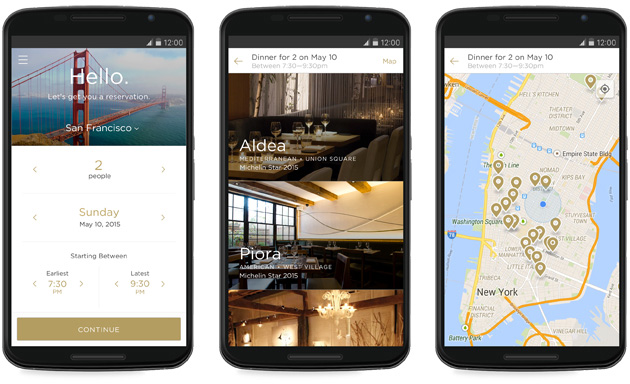
Photography
- The Olympus Air is a standalone 16MPixel camera lens that can connect to Android or iOS via WiFi for a decoupled take on the camera phone:
Asia
- This NYT article on Chinese protectionism highlights how cybersecurity concerns are being used to make life difficult for Western companies. New rules for selling to Chinese banks require technology suppliers to “turn over secret source code, submit to invasive audits and build so-called back doors into hardware and software“:
“China’s Internet filters have increasingly created a world with two Internets, a Chinese one and a global one. The new policies could further split the tech world, forcing hardware and software makers to sell either to China or the United States, or to create significantly different products for the two countries.”
- Apus is a “a seven-month-old Chinese company that develops Android utility apps for the global market“. In a major validation of its business strategy, it just secured a $100million Series B round funding which it intends to use it to push its app propositions out to the West. The company is committed to remain an Android-only proposition.
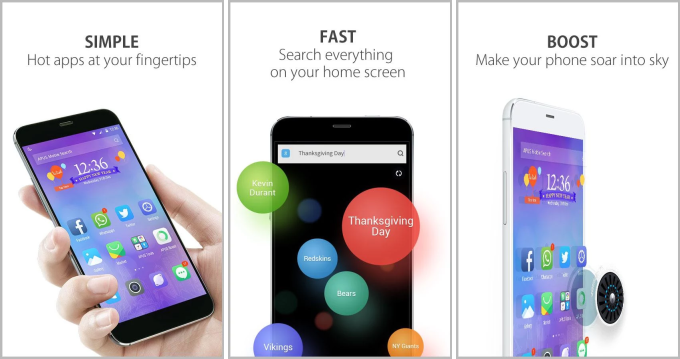
- Mad Street Den is an interesting Indian-based technology startup focussed on building products that apply artificial intelligence to eCommerce and analytics use cases:
“The e-commerce product is centered around fashion, and offers a range of advanced services such as visual search. That could allow a shopper to take a photo of a bag or top, for example, then select their favorite color and find the nearest match on an e-commerce site.”
Wearables and the Internet of Things
- Under Armour have bought MyFitnessPal for just under half a billion dollars. It’s another significant validation of the wearable data market as essentially that price puts a valuation of $10/user on API access to the data being held by MyFitnessPal:
“MyFitnessPal reportedly has 45 million active users. It works with a large number of the most popular health apps and trackers, including those from Fitbit, Jawbone and Garmin. In fact, its greatest strength as a service aside from its dedicated fans and users is that its API is so widely used that even minor health apps or accessories often have built a direct connection to pipe data into MyFitnessPal.”
- Swatch have announced a smartwatch which may launch at the same time as the Apple Watch in a move that TechCrunch suggests shows that “high-end horology is finally figuring out that they are in trouble“. Swatch arguably have more to lose than most watchmakers if the Apple Watch takes off.
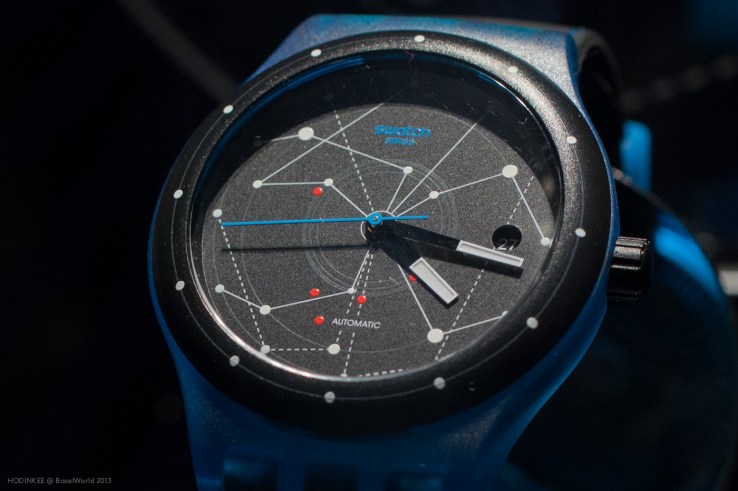
- This VisionMobile article confirms a huge latent developer interest in IoT verticals which isn’t altogether surprising given the relative adjacency of smartphone and IoT development skillsets:
“The data from our recent Developer Economics survey of 8,000+ mobile developers shows that 53% of mobile developers are already involved in IoT either making products, as a side project or as a hobby.”

- Benedict Evans on the complex strategic battlelines emerging in IoT with smartphones looking to “bundle” hardware capabilities and disrupters such as Nest and Ringly seeking to pull away and spin off separate hardware based ecosystems:
“Our a16z investment Ringly is a fascinating angle on this – as the smartphone bundles up hardware categories we start creating new ones that unbundle it. “
- The forces of smartphone bundling in this battle are very strong. This HIV testing appcessory is a good illustration of that underlining how the smartphone has become a 21st century Swiss Army knife:
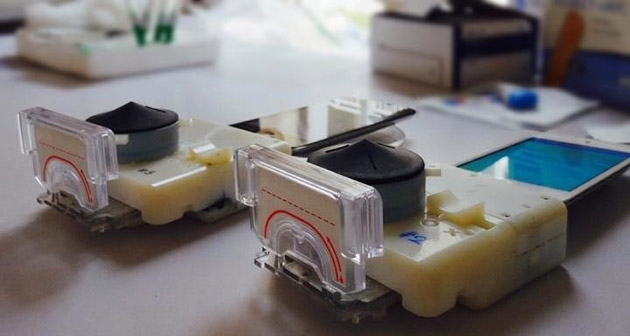
Social Media
- NYT provided these social media usage observations based on their experience. A key one being that you shouldn’t try too hard to please Twitter.
Smart Retail
- GigaOM published a report on the rise of the “everywhere customer” and the profound impact their presence will have on how brands integrate and use CRM technology within both physical retail and virtual environments:
– The new “everywhere customers” use multiple devices during the course of a single transaction. They assume that brands will be available on any channel and will communicate between channels to provide a consistent, unified experience.
– Disney, Macy’s, Wells Fargo, and other leading brands are rolling out technologies to provide unified “everywhere service” to customers onsite, via the web, and through phone apps.
Software Development
- InfoQ on Agile Software Contracts and how to fit Planning Poker into an RFP bound commercial model. Here’s the revolutionary tl;dr takeaway:
“we concluded it is possible to develop a huge project in an Agile way by cutting this into smaller pieces”

- The BBC’s Dr Who educational coding game for kids looks a bit like Lightbot:

- Dr Who may have to contend with Minecraft if the kids switch to Windows 10 on the new ARM Cortex-A7-based Raspberry Pi. It’s a smart move on Microsoft’s part to bring Raspi into the “Windows IoT” fold given the large intersect between Minecraft and Raspberry Pi enthusiasts and the relatively limited Minecraft Pi support available today.
-
Quora asks “Are there really programmers with computer science degrees who cannot pass the FizzBuzz test?” Experience suggests it’s sadly all too common an occurrence. Less frequently you’ll get architecture diagrams or UML. If you encounter someone able to comply with a one-liner response along these lines in under a couple of minutes you probably want to pay attention:
print '\n'.join(list(str(i) if i%3 and i%5 else 'Fizz' if i%5 else 'Buzz' if i%3 else 'FizzBuzz' for i in xrange(1,101)))
Inequality
- Another form of power-law driven inequality emerged this week in the ever-growing consumption of mobile data highlighted above. According to a report from US telecoms equipment vendor Amdocs “just 10 percent of mobile users are consuming 80 percent of the world’s mobile data traffic” and among these there is inevitably a further skew to a “1%” taking the lion’s share:
“Amdocs calls these folks the “Technorati,” and it’s easy to figure out who they are. They’re the consumers sporting not just advanced smartphones and tablets but often multiple connected devices.”
- Darkness is very much visible in this excoriating take on a post-crash UK landscape where far from being “all in it together” after collectively absorbing bank debts many in the Precariat are now struggling to cope alone with their “privatised despair“:
“The characteristic jobs of this slump are the Uber driver, or the outsourced care worker going from door to door for 15 minutes a time. The new work is in perma-temping, shuttling from workplace to workplace, or in enforced freelance or fake self-employment. Forget about collective organisation or trade unions: these are often low-paid areas of work where regular contact with a roster of people who know your name cannot be guaranteed.”
Work and Culture
- Even those do have a “proper” job aren’t exactly having a ball with old-fashioned presenteeism and hard work increasingly irrelevant in the modern workplace. In fact this article in praise of antiwork argues that Puritan ideal of the “virtuous” hard worker is now completely outmoded and simply asking people to be “more productive” is not going to solve society’s current problems:
“The reason that it’s no longer about work is because most of the wealth no longer comes from human labor,” he adds. “But the way the problem is typically presented, you’d think idleness was the problem, and that getting people back into work was the solution. But the global economic collapse wasn’t caused by human idleness, and neither were the previous recessions.”
- Pebble just hit the psychologically important milestone of 1 million watches sold. Working backwards in terms of revenue they’ve raised in the last couple of years, it’s clear they have achieved impressive growth and are ploughing ahead with new software and hardware. It’s worth looking at their current list of open positions to get a great insight into the talent profile needed to run and expand an operation like this – most of these openings involve engineering and/or software:
- Studying the Pebble list should underline why it is critical to stay focussed and put personal effort into remaining relevant in an age of technological change – many of the positions posted by Pebble require tech skills that could only have been gained in the last few years. This HBR article outlines why staying focussed will also help manage your emotions and why it is important to creating breathing space for yourself at work:
“If you’re a leader sitting in a meeting that’s not worth your focused attention, then you’re serving a theatrical function. Sometimes this makes sense. There’s a place for organizational theater. But more often the whole organization is suffering because your most precious resource is being wasted. Let the people who organized the meeting know that you’ll attend in the future when you’re needed, excuse yourself, and get on with your day. “
